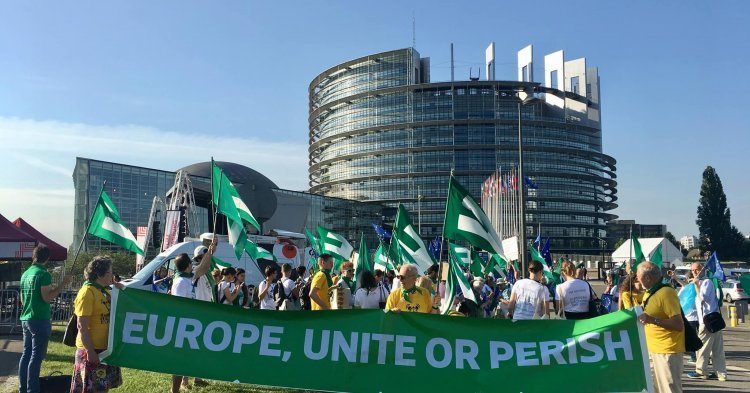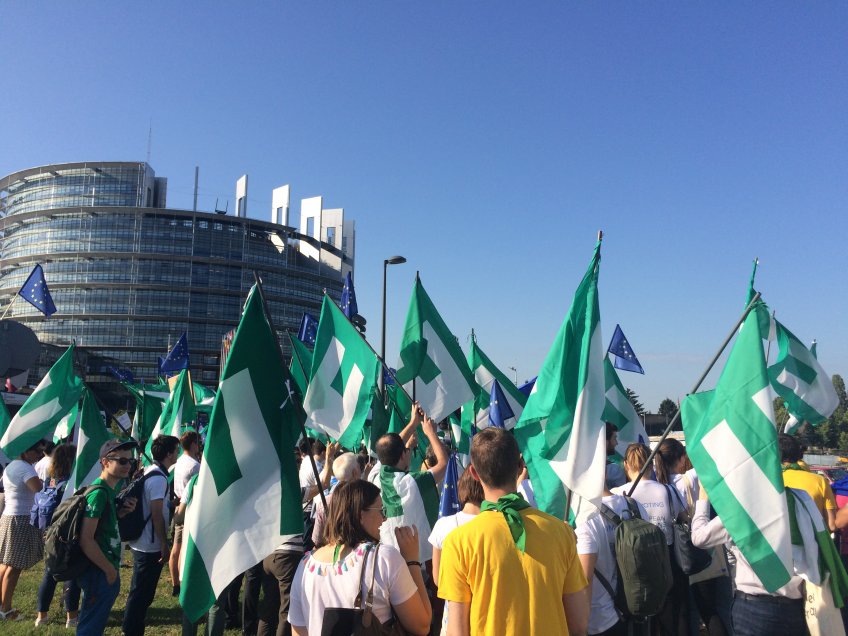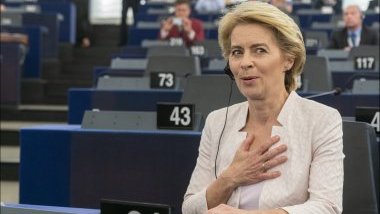From 29 June to 2 July, the federalists met in Strasbourg, seat of the European Parliament, for a seminar co-organised by UEF France and JEF France. Discussions, debates, meetings and workshops took place, around a theme that was as vast as it was complex: what political priorities should the federalists have in the new European Parliament?
An opportunity to make connections with new MEPs
The evening of 1 July at the European Parliamentary Association was memorable. Civil society activists and citizens had the chance to discuss with 25 MEPs whose remarks were motivating and inspirational. Marie-Pierre Vedrenne from the liberal Renew Europe group underlined the importance of dialogue and listening, and of making federalism a pedagogy to teach rather than a moral to impose. Christophe Grudler, also from Renew Europe, also said that “federalism isn’t a bloc to join in its entirety”, but that you need to present it and get acceptance for it point by point.
As for the political priorities of federalists, Alexandra Geese from the Greens reminded that no issue can be left aside, as all are linked. Thus, one needs to work for women’s rights, the environment, economic and social rights, all the while keeping in mind that technological advances are ever more rapid and that these have implications for the Europe of tomorrow. Digital affairs will therefore also be on the agenda for the Greens.
If you need to remember one idea, it’s this: federalism isn’t only a political project, it’s an all-encompassing project.
From discussing to demonstrating
On 1 July, Sandro Gozi, President of the Union of European Federalists, reminded the audience of the benefits that a federal EU would represent. A more powerful continent, more solidary peoples, a stronger currency, but above all “local prerogatives to act on the global arena”.
Because that’s the fundamental issue for the federalists: having European citizens understand that federalism doesn’t mean the authority of an all-powerful Europe. On the contrary, it would be about using the principle of subsidiarity (found in Article 5.3 of the Treaty on European Union) to its fullest extent, to make the EU an area of citizen expression and action.
Boosted by the speech, and by the federalist MEPs, 250 federalists gathered in front of the European Parliament the morning of 2 July. Next to the pro-Catalan independence activists who were having their own protest – the federalists, under the leadership of UEF, made the opening of the 2019-2024 mandate a memorable day.
The federalists had exchanges with several MEPs on the square in front of the Parliament and called for the Parliament to support the Spitzenkandidaten system for electing the next President of the European Commission. Unfortunately, the European Council rejected the application of the principle as it proposed the German Ursula von der Leyen for the post.
Passing from ideas to reality by 2024?
The green flags waved in the wind all morning to support the political priorities shaped at the seminar, and to demonstrate the engagement of the activists. Time shall tell how this demonstration is translated into reality.
Will the federalist ideas manage to transcend the conflicts between political groups? Will the rebalance of power in the European Parliament benefit the federalists? Will the 2019-2024 legislature finally be the pathway towards a federal EU that Victor Hugo already called for at the 1849 Peace Congress? The next five years will tell.




Follow the comments: |
|
